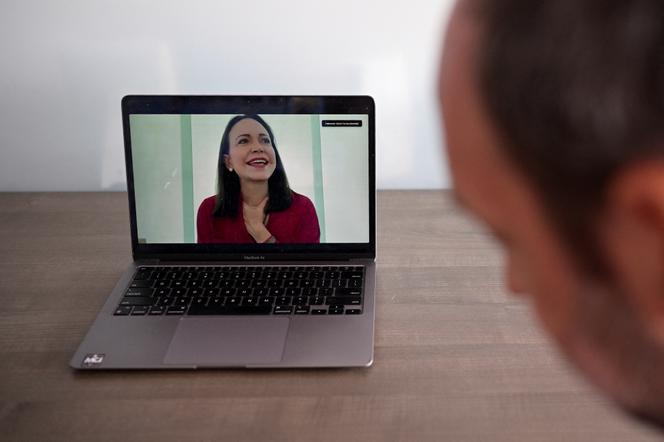


Each video plays out the same way: First, a demonstrator is seen protesting in the street against Venezuelan leader Nicolas Maduro, or an internet user criticizes the regime on social media. Then, this same person appears in front of the camera, filmed against the backdrop of a police logo, looking contrite, claiming to be repentant and asking the head of state for forgiveness. The whole production is dramatized with images and music from horror films, maybe one of the Freddy Krueger movies, or Chucky.
The Armando.info website published around 20 such videos, uploaded from the official accounts of various Venezuelan intelligence services. "The regime uses terror to inhibit any hint of protest, with a media component that didn't use to exist," sociologist and human rights defender Rafael Uzcategui, co-director of the Laboratorio de Paz think tank, told Le Monde. "Previously, 'traditional' dictatorships tried to conceal abuses of power. Today, on the contrary, they highlight them to frighten people."
As a sign of this climate of terror, Edmundo Gonzalez, the opposition candidate claiming victory over Nicolas Maduro in the July 28 presidential election, fled Venezuela in a surprise move on Saturday, September 7: Spain granted him asylum.
For the opposition, threats have become explicit, with many exiles fearing for their loved ones back home. On August 20, addressing Venezuelan artists and influencers living abroad who support the opposition, Maduro warned: "It's up to you to decide if you want to continue your career, with your family in Venezuela." He made specific reference to highly popular influencer Lele Pons, 28, who hosted a live video on Instagram with opposition politician Maria Corina Machado that garnered 10 million views.
The leader no longer concealed his anti-democratic pretensions: "When it's my turn to hand over power, I'll hand it over to a Chavist, Bolivarian and revolutionary president," he declared on Monday, September 2.
In Venezuela, since the presidential election on July 28, an unprecedented crackdown has been carried out against all those who contest Maduro's victory. The National Electoral Council declared victory on the evening of the vote, without providing any proof. Meanwhile, the opposition, relying on the 83% of ballot minutes it managed to obtain, insisted that its candidate, Edmundo Gonzalez, had won. In just two days of protests following the council's proclamation, on July 29 and 30, at least 24 people were killed, many by gunfire. The colectivos, paramilitary militias, appear to have been involved in 19 deaths, according to a report by the NGO Acled, which described a crackdown "more ruthless" than that during the 2019 protests, following the disputed re-election, once again, of Maduro.
You have 72.57% of this article left to read. The rest is for subscribers only.
